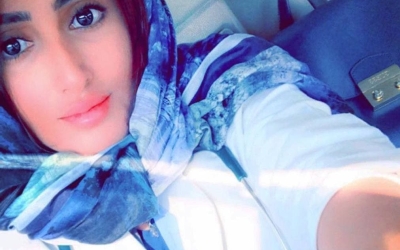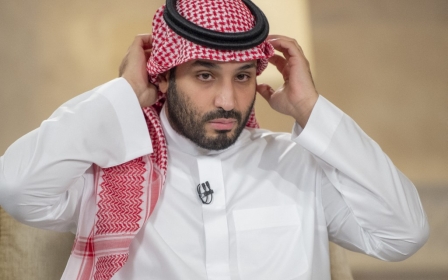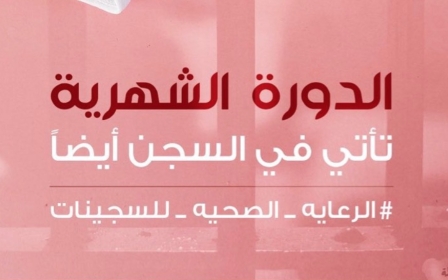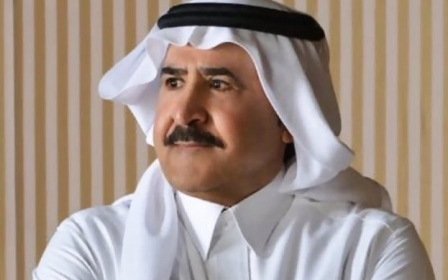Saudi Arabia jails Sudanese commentator for criticising kingdom
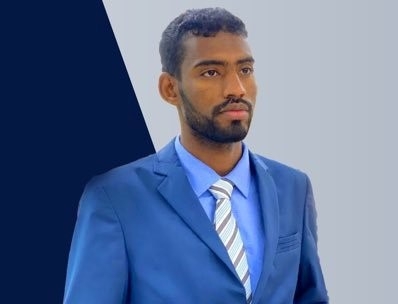
Saudi Arabia has jailed a Sudanese media personality for four years over tweets and media appearances critical of the kingdom’s policies.
Ahmad Ali Abdelkader was sentenced on 8 June, according to a report published on Tuesday by Human Rights Watch (HRW).
Abdelkader worked in Saudi Arabia between 2015 and late 2020, first as a media coordinator for the Asian Football Federation, and then in marketing at a Saudi supermarket chain.
In December, he left the country with a final exit visa, before returning in April on a new work visa.
Saudi authorities arrested him as soon as he arrived at King Abdulaziz International Airport in Jeddah on 19 April, according to the report. The last tweet he posted on his account was on 18 April.
New MEE newsletter: Jerusalem Dispatch
Sign up to get the latest insights and analysis on Israel-Palestine, alongside Turkey Unpacked and other MEE newsletters
The 31-year-old was detained in a Jeddah police station for 20 days, before being transferred to a detention centre near Mecca.
His trial consisted of two short sessions, in which he was denied access to a lawyer and the chance to defend himself, a source with direct knowledge of the case told the New York-based rights group.
Saudi court cites critical tweets
Nine tweets and two media interviews were referenced by the Jeddah criminal court ruling.
In one tweet from September 2020, he predicted that Sudan would not normalise relations with Israel unless Riyadh did so too, because Khartoum “cannot revolve outside Saudi Arabia’s orbit”.
In another tweet from March last year, responding to Covid-19 measures in Sudan, Abdelkader accused Sudan’s military government of taking its decisions “from Riyadh and not from Khartoum”.
A tweet from three years ago accused Saudi Arabia of financing the Islamic State militant group, and accused the kingdom's media of being a “Zionist mouthpiece”.
The court claimed that Twitter interactions with Egyptian opposition journalist Moataz Matar, and the fact that Matar’s number was saved on Abdelkader’s phone, was evidence that the Sudanese media personality belonged to the Muslim Brotherhood.
In addition to tweets, the Saudi court ruling cited two media interviews, with Egyptian opposition channel El Sharq and Bosnia’s N1 TV channel, in which Abdelkader discussed the Sudanese revolution.
It also mentioned email exchanges with human rights organisations in which he inquired about membership and subscribing to newsletters.
'Renewed crackdown in recent months'
Abdelkader was convicted of posting tweets “insulting to the state’s institutions and symbols”, criticising Saudi-led forces in Yemen, speaking negatively about Saudi relations with Sudan and “appearing on media platforms loyal to parties hostile to the kingdom”, among several other charges.
“Unfortunately, such cases of individuals being imprisoned merely for tweets deemed offensive to the authorities have become the norm in Saudi Arabia,” Ines Osman, director of MENA Rights Group, told Middle East Eye.
Under Saudi Arabia’s anti-cybercrime law, the court ordered Abdelkader's Twitter, Facebook and TikTok accounts to be shut down and his phone to be confiscated.
“Though the repressive laws that allow for such crackdown are far from new, there has been a renewed crackdown in recent months of abductions and arrests on similar grounds,” Osman said.
“The cases of university graduate Abdullah Jelan and Saudi doctor Lina Alsharif, who have both been missing since their arrest by security forces in May 2021, is telling as both were likely disappeared in reprisal for being active on social media and advocating for basic human rights and freedoms in their country.”
Middle East Eye delivers independent and unrivalled coverage and analysis of the Middle East, North Africa and beyond. To learn more about republishing this content and the associated fees, please fill out this form. More about MEE can be found here.


